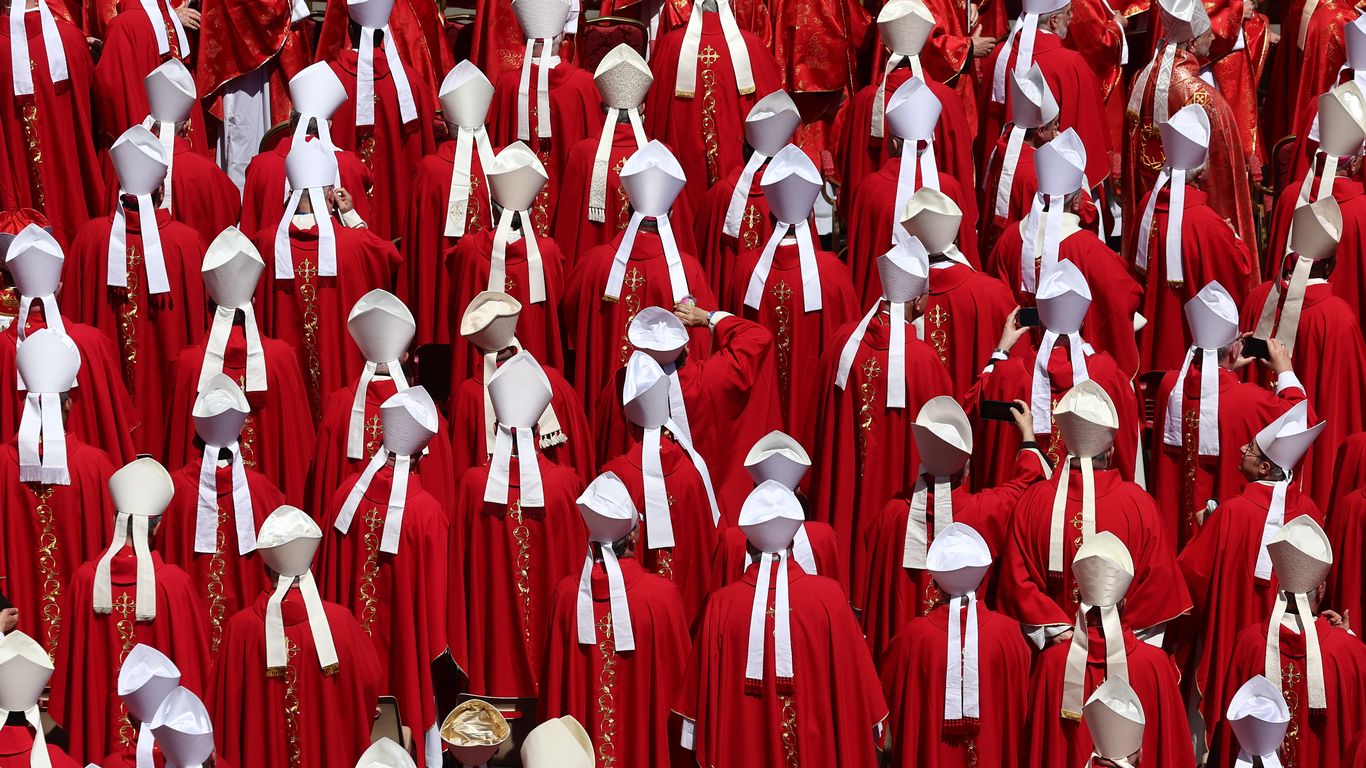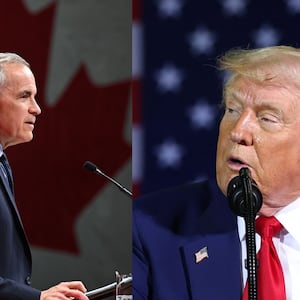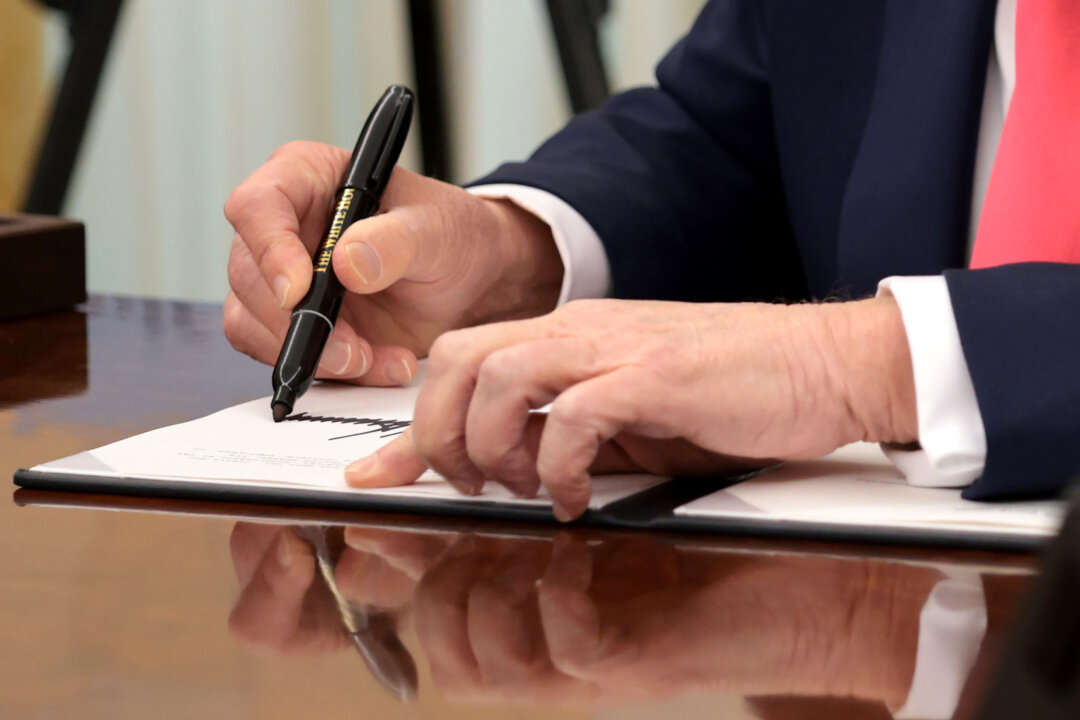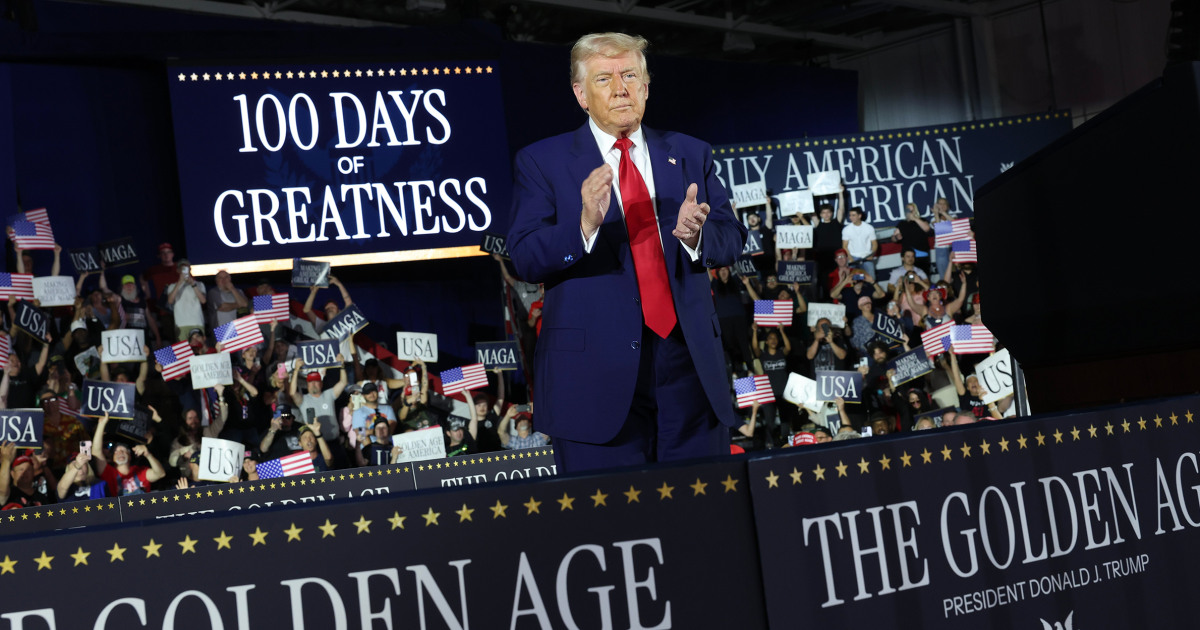Whoever succeeds Pope Francis to become the Catholic Church's 267th pope, his first major decision will be to choose his papal name. Why it matters: That name, rooted in centuries of church history, dogma and devotion, will signal the new pope's agenda within the church and beyond.The birth of a nameAfter a winner emerges from the highly secretive conclave of cardinals and accepts the post, the church will announce its famous "Habemus Papam" (Latin for "We have a pope").
He'll take a papal name (Francis was born Jorge Mario Bergoglio) and will be introduced to the world.No official rules govern the selection of a name — it's entirely up to him.What's in a name?Tradition dating back about 1,000 years indicates that a new pope will choose a name in honor of a Catholic saint.

He also can select a name in honor of a recent pope, combine names of a recent pope or saint, or pick a new regnal name — something that's been done just twice in the last 1,100 years. "It's the most important decision he'll make, and signal to the world his tone," Allen Sánchez, executive director of the New Mexico Conference of Catholic Bishops, tells Axios.Zoom out: John has been the most popular name for popes, with 21 popes selecting the name in honor of John the Evangelist.
Tradition links John to the Gospel of John and the Book of Revelation, though scholars debate whether the same John wrote those books, or if any John wrote them. The second and third most popular names have been Gregory and Benedict. The intrigue: No pope has dared to pick Pope Peter II as his name, because St.
Peter was the original pope.The name vibe todayThe name the new pope selects could have geopolitical implications and declare the direction he wants to take on issues such as war, climate change, and health and government policies. If the next pope chooses:Francis II, he'll signal that he wants continuity with Pope Francis, who focused on the poor, climate change, interfaith dialogue, and decentralizing church power.
Despite church doctrine opposing homosexuality, Francis made a point of emphasizing the civil rights of those in the LGBTQ community. Francis honors St. Francis of Assisi, who led a life of poverty.
John XXIV, he'll echo Pope John XXIII, who launched Vatican II (a reform movement of the 1960s) and could signal a desire to push the church toward more modernization and engagement with contemporary culture.Leo XIV, it's a sign he'll seek links to doctrinal clarity and a conservative-leaning defense of traditional church teachings.Pius XIII, he'll send ultra-traditional vibes with pushback against liberal trends in the church.
Paul VII, he'll suggest he wants to build on the work of Pope Paul VI, who in the late 1960s tackled modern issues such as birth control — rejecting means such as the pill, sterilization and abortion, but accepting natural methods.Bold naming optionsThe next pope could follow Pope Francis and select a new regnal name that could send a powerful message. If the next pope chooses:Oscar I, he would honor St.
Óscar Romero of El Salvador, the archbishop of San Salvador, who was assassinated in 1980 after speaking out against violence. Pope Oscar I would signal a strong commitment to social justice.Joseph I, he'd be giving a nod to St.
Joseph, signaling paternal care and humility.Martin VI, he'd send a message about racial justice, referencing St. Martin de Porres, patron saint of racial harmony and mixed-race people.
Maximilian I, he'd honor St. Maximilian Kolbe, the Polish priest who was killed at Auschwitz. He's the patron saint of journalists and addicts, and his name would signal support for free speech and a commitment to fight genocide.
Jude I, he'd signal that he's here for the marginalized, the poor, and people seeking hope. St. Jude is the patron saint of lost causes and is hugely popular in Latin America, the American Southwest and Asia.
Between the lines: Jude I would refer to Judas Thaddaeus, sometimes identified as Jude, the brother or cousin of Jesus, and not Judas Iscariot, the disciple who betrayed Jesus. Jude is also the word for Jew in some languages, and a Pope Jude I could send a powerful message against rising antisemitism globally..
What's in a pope's name: Saints, inspirations and a message

Whoever succeeds Pope Francis to become the Catholic Church's 267th pope, his first major decision will be to choose his papal name. Why it matters: That name, rooted in centuries of church history, dogma and devotion, will signal the new pope's agenda within the church and beyond.The birth of a nameAfter a winner emerges from the highly secretive conclave of cardinals and accepts the post, the church will announce its famous "Habemus Papam" (Latin for "We have a pope").He'll take a papal name (Francis was born Jorge Mario Bergoglio) and will be introduced to the world.No official rules govern the selection of a name — it's entirely up to him.What's in a name?Tradition dating back about 1,000 years indicates that a new pope will choose a name in honor of a Catholic saint.He also can select a name in honor of a recent pope, combine names of a recent pope or saint, or pick a new regnal name — something that's been done just twice in the last 1,100 years. "It's the most important decision he'll make, and signal to the world his tone," Allen Sánchez, executive director of the New Mexico Conference of Catholic Bishops, tells Axios.Zoom out: John has been the most popular name for popes, with 21 popes selecting the name in honor of John the Evangelist.Tradition links John to the Gospel of John and the Book of Revelation, though scholars debate whether the same John wrote those books, or if any John wrote them. The second and third most popular names have been Gregory and Benedict. The intrigue: No pope has dared to pick Pope Peter II as his name, because St. Peter was the original pope.The name vibe todayThe name the new pope selects could have geopolitical implications and declare the direction he wants to take on issues such as war, climate change, and health and government policies. If the next pope chooses:Francis II, he'll signal that he wants continuity with Pope Francis, who focused on the poor, climate change, interfaith dialogue, and decentralizing church power. Despite church doctrine opposing homosexuality, Francis made a point of emphasizing the civil rights of those in the LGBTQ community. Francis honors St. Francis of Assisi, who led a life of poverty.John XXIV, he'll echo Pope John XXIII, who launched Vatican II (a reform movement of the 1960s) and could signal a desire to push the church toward more modernization and engagement with contemporary culture.Leo XIV, it's a sign he'll seek links to doctrinal clarity and a conservative-leaning defense of traditional church teachings.Pius XIII, he'll send ultra-traditional vibes with pushback against liberal trends in the church.Paul VII, he'll suggest he wants to build on the work of Pope Paul VI, who in the late 1960s tackled modern issues such as birth control — rejecting means such as the pill, sterilization and abortion, but accepting natural methods.Bold naming optionsThe next pope could follow Pope Francis and select a new regnal name that could send a powerful message. If the next pope chooses:Oscar I, he would honor St. Óscar Romero of El Salvador, the archbishop of San Salvador, who was assassinated in 1980 after speaking out against violence. Pope Oscar I would signal a strong commitment to social justice.Joseph I, he'd be giving a nod to St. Joseph, signaling paternal care and humility.Martin VI, he'd send a message about racial justice, referencing St. Martin de Porres, patron saint of racial harmony and mixed-race people.Maximilian I, he'd honor St. Maximilian Kolbe, the Polish priest who was killed at Auschwitz. He's the patron saint of journalists and addicts, and his name would signal support for free speech and a commitment to fight genocide.Jude I, he'd signal that he's here for the marginalized, the poor, and people seeking hope. St. Jude is the patron saint of lost causes and is hugely popular in Latin America, the American Southwest and Asia. Between the lines: Jude I would refer to Judas Thaddaeus, sometimes identified as Jude, the brother or cousin of Jesus, and not Judas Iscariot, the disciple who betrayed Jesus. Jude is also the word for Jew in some languages, and a Pope Jude I could send a powerful message against rising antisemitism globally.















